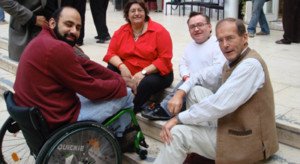
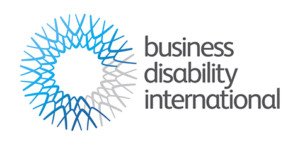
In conversation with Simon Minty… consultant, commentator and comedian on all things disability.
Simon, you’re a man of many hats, what do you consider as your ‘day job’?
I really wear two hats, firstly running Sminty, a disability and diversity consultancy, which focuses on how businesses in the UK and abroad can better support and engage their staff and customers with disabilities. My other hat is rather more creative, as a producer for the comedy troupe ‘Abnormally Funny People,’ as co-host for BBC Ouch, and more recently the Phil & Simon show… amongst other things.
It’s a wonder you find time to think with all that on your plate. Out of everything you do, what do you think has the most impact in getting business leaders to look at their world differently and to overlay a disability lens?
One thing that makes a real difference is an event called ‘Dining with a Difference.’ Senior business leaders don’t come to diversity and equality training… but they do come to dinner. Our ‘dinner’ brings disability to life for them, taking them from simple, accessible enquires like ‘Who do you know or interact with who has a disability?’ to considering how their organisation could be better. One question I sometimes ask is if their relatives or friends who have a disability, could they work in their organisation? If they flinch, I know there is more work to do! At an international level the culture and attitudes really come into play, but it’s a powerful concept to get people thinking.
Given your work internationally, you must have had some interesting experiences that throw light on the varied cultural attitudes to disability?
Of course, one that comes to mind is at a theatre in Albania where I was giving a talk about the role employers and technology can play in making reasonable adjustments, accessibility, etc… it initially looked like a small group of 20, but just before I started talking, a large group of 250 students came in, and several seemed to take offence to my stance. Their own cultural perspective was linked to the ‘benevolent’ approach to disability; people with disabilities should be looked after, not forced or encouraged to work, and there were no expectations of them. It made for an interesting debate, but I enjoy and revel in that.
So what role do you think global business can play in increasing the social and economic inclusion of disabled people worldwide?
In the international work I’ve done, travelling for multi-national finance companies for example, I’ve observed that global organisations often have inclusive policies which may exceed legislation and policy in the countries in which they operate in. So their offices are an oasis of accessibility when compared to other buildings in the city, and maybe even the country.
Business can lead the way in role-modelling good practice on disability. Through business demonstrating fairness and inclusion, they will in turn inspire and engage a wider audience of policy-makers, local advocates and government to collaborate and deliver meaningful change.
If you could give a global CEO one piece of advice on what they should do differently, what would you suggest?
Just one? I’d tell them that they have to engage directly with disabled people and ask them questions about the changes that need making. They should also find out about the skills and talent disabled people have. Nothing makes sense until you talk to the people affected.
I’d also ask them to recognise the need to be flexible. Disability isn’t one size fits all. Sometimes you have to treat people differently to treat them fairly.
Tell me about something that has struck you recently about the world that you operate in.
The other day I heard that Nikki Fox had joined the Watchdog team on BBC alongside her role as BBC disability correspondent. I was chuffed to hear that, as along with the likes of Liz Carr, Lisa Hammond and several others, it feels like the representation of disability in mainstream media is really changing. Of course now we need to focus on getting more disabled men in the media… but one step at a time! Portraying the broad spectrum of disability isn’t easy, the media don’t always get it right, but it’s really important.
What does the phrase ‘disability confidence’ mean to you?
To me it’s about managers and leaders being confident enough to have a conversation about disability, talking to disabled people and not shying away from starting the discussion out of awkwardness or fear of getting it wrong.
At an organisational level one of the great examples of ‘disability confidence’ I’ve come across is that in working internationally for the British Council they ALWAYS get local disabled people involved. It makes the work interesting, meaningful and authentic and allows companies to stay connected to the reality of people with disabilities.
And where have you seen things go wrong?
(Cue laughter)… Well it’s really about half measures and not thinking things through. When in Hong Kong I was invited to take the Star Ferry across the harbour. They had a lift to enable me to ‘embark’ with my mobility scooter. Unfortunately, there wasn’t a lift on the Kowloon side so there was no chance to disembark until I got back to the beginning. It might have changed now as this was a few years back. It was a start at least.
Thanks for your time Simon, great speaking to you.
Find out more about Simon Minty and check out his latest podcast for the Phil & Simon Show.
Dining with a Difference
http://www.diningwithadifference.com
BBC Ouch talkshow
http://www.bbc.co.uk/programmes/p02r6yqw
Phil & Simon Show
https://audioboom.com/PhilandSimonShow
Sminty Ltd
Abnormally Funny People
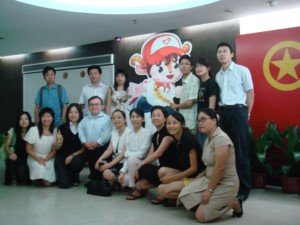
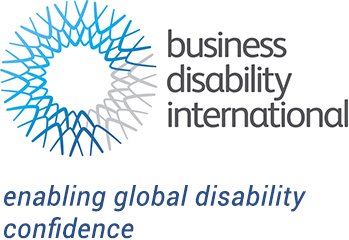
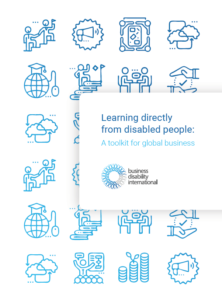

Leave A Comment